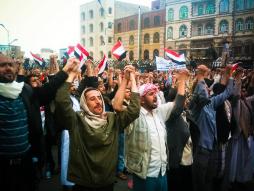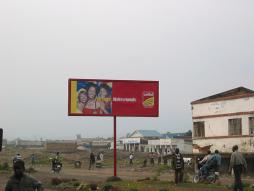conflict
Posted by IbrahimMothana on Nov 29, 2011
Editor's Note: This post is written by Ibrahim Mothana who is an Atlas Corps Fellow with MobileActive.org in 2011/2012. He is a Yemeni citizen from Sanaa.
In Yemen it’s difficult to know just how many wars are raging in the country at any one time. For centuries the country has been plagued by revenge killings and tribal conflict and the result is hundreds of deaths each year with many more injured. These localized wars can last for decades and are one of the most serious issues facing the country today.
In rural regions of Yemen, formal legal systems and a legal infrastructure do not exist, and tribal law has significant legitimacy as the only effective and efficient means of conflict resolution. Tribal laws are based on consensus, and conflicts are resolved through complex mediation processes and appeals procedures presided over by tribal elders and leaders (sheikhs). Due to the lack of many formal legal channels and the corruption in the legal infrastructure that exists, tribal law is faster, more efficient, and enjoys greater legitimacy.
Yet one of the biggest obstacles in using tribal law as a tool for conflict resolution is the lack of communication -- which is, in fact, often the root cause of many of the disputes between tribes. Creating dialogue between communities becomes an extraordinary challenge in a country with 24 million people dispersed over 150,000 human settlements.
| Phones versus AK47s: Mobiles for Conflict Management in Yemen data sheet 1085 Views |
| Global Regions: |
|
| Countries: |
Yemen
|
Posted by AnneryanHeatwole on Oct 22, 2009
Digital Media in Conflict-Prone Societies data sheet 3033 Views
Abstract:
The complex relationship between media and conflict is longstanding. Traditional mass media have been used to amplify and extend viewpoints and ideologies, to persuade audiences at home, and to influences opposing sides in conflict. However, both media and conflict have changed markedly in recent years. Many 21st century wars are not only about holding territory, but about gaining public support and achieving legal status in the international arena. Governments seek to hold onto power through persuasion as much as through force. Media are increasingly essential elements of conflict, rather than just functional tools for those fighting. At the same time, newer media technologies have increased communication and information dissemination in the context of conflict. In particular, the growth of citizen media has changed the information space around conflict, providing more people with the tools to record and share their experiences with the rest of the world.
Posted by fredericknoronha on Aug 27, 2008
A new study from the University of Manchester argues that conflict is benefitial to mobile infrastructure investments. These investments have long thought to be dependent on 'pillars' like security and stability, finance and infrastructure, workers and labour markets, and the regulatory framework and tax. "Overarching all of these, the view is that good, stable governance forms the crucial basis for investment," write Agnieszka Konkel and Richard Heeks from the University of Manchester in the UK.


